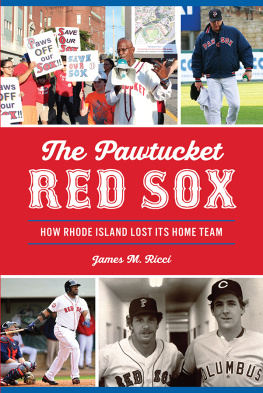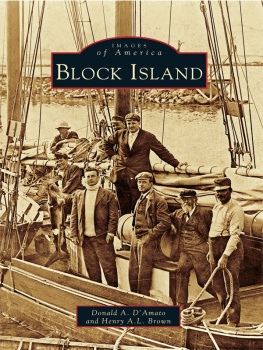


Silence, deep, vast, and unbroken save for the sounds of the forest, brooded for centuries over a fall of water that dashed its way into a stream in the midst of a wilderness. Indians broke a trail thither, and tradition says they named the place Pawtucket, meaning the place of the waterfall. The waters abounded in fish; the redmen built wigwams and speared the salmon which had found the foaming rapids insurmountable and had congregated in the pools at the foot of the falls. And, days of fever and famine being forgotten in the midst of this munificence, the Indians held their revels there.
Pawtucket Past and Present, Being a Brief Account of the Beginning and Progress of Its Industries and a Rsum of the Early History of the City, Slater Trust Company, 1917
At the town line, his headlights flashed on a statue of the Blessed Virgin set up on a knoll between the road and the Edson River. Keeping her back to the town, she greeted each oncoming car with her palms open at her sides, her shoulders hiked in a permanent shrug as if to say, Welcome to Edson. Its not my fault.
Bill Morrissey, Edson, 1996
Were blessed to make our living playing a little kids game on a field of freshly cut grass.
Ben Mondor, Owner, Pawtucket Red Sox, 19772010
I hate graveyards and old pawn shops
For they always bring me tears
I cant forget the way they robbed me
Of my childhood souvenirs.
John Prine, Souvenirs, 1972
Published by The History Press
Charleston, SC
www.historypress.com
Copyright 2022 by James M. Ricci
All rights reserved
Front cover: On September 26, 2017, former Red Sox and PawSox pitcher Dennis Oil Can Boyd rallied proponents at Tolman High School in Pawtucket, Rhode Island, scene of the second Senate Finance Committee hearing on the proposed Ballpark at Slater Mill. Photo by Ernest A. Brown, from the Pawtucket Times; David Big Papi Ortiz homered in three successive games at McCoy in July 2008. Courtesy of the Pawtucket Red Sox.
First published 2022
E-Book edition 2022
ISBN 978.1.43967.454.3
Library of Congress Control Number: 2021950616
Print Edition ISBN 978.1.46714.563.3
Notice: The information in this book is true and complete to the best of our knowledge. It is offered without guarantee on the part of the author or The History Press. The author and The History Press disclaim all liability in connection with the use of this book.
All rights reserved. No part of this book may be reproduced or transmitted in any form whatsoever without prior written permission from the publisher except in the case of brief quotations embodied in critical articles and reviews.
Contents
To Alice Mary (Gorman) Ricci
19212008
Fox Point, Roberta Plat, Mother
Preface
On February 23, 2015, news broke that a group of investors had purchased the Pawtucket Red Sox. The group comprised well-known, high-profile, wealthy business leaders and baseball executives from Rhode Island and Massachusetts. The new owners intended to build an $85 million ballpark in Downtown Providence and move the team to the states capital city. The deal never reached fruition.
The proposal came at an inopportune time. The state was still stinging from the loss of its investment in a computer game development company. It had floated $75 million in bonds to encourage a business called 38 Studios to move its headquarters and associated jobs to the Ocean State. Fourteen months after relocating, 38 Studios was bankrupt. The wreckage from the failed economic development loan colored future public investment in private ventures.
Following the collapse of the Providence Ballpark Plan, PawSox executives and Pawtucket city officials mended broken fences and worked together to keep the team in Rhode Island. The teams lease on McCoy Stadium, its home since 1973, was expiring at the end of 2020. The stadium itself had seen better days. A feasibility study analyzed whether to repair, renovate, or rebuild the stadium. The study suggested exploring a new ballpark in a location that complemented Pawtuckets future development plans. McCoy Stadium needed serious repairs and was missing many features conducive to modern minor-league ballparks; more importantly, it was in the wrong neighborhood.
A better place for the ballpark was closer to Historic Slater Mill, birthplace of the American Industrial Revolution, on a piece of land between Interstate 95 and the Blackstone River. Downtown Pawtucket sat directly on the rivers other bank. An interesting building with a distinctive white roof in the form of a ziggurat occupied the site, the home of Apex Companies. On May 16, 2017, PawSox executives, state officials, and city leaders eventually struck a deal to build the Ballpark at Slater Mill on the Apex land, erecting a stunning gateway at the northern entrance to Rhode Island.
Most of the states leaders said that they did not want to lose the PawSox, as long as it did not have a negative economic impact on taxpayers. The proposal would have kept the team in Pawtucket for another thirty years or more. The Senate Finance Committee vetted the deal during the fall of 2017, revised the bill in December, and passed the enabling legislation in January 2018. With time being of the essence, the Speaker of the House sat on the bill until the last day of the legislative session in June 2018 and then submitted a revised version that eliminated the states backstop. Without state protection, the cost of the ballpark would rise exponentially.
On August 17, 2018, the PawSox announced that they had accepted a proposal from Worcester, Massachusetts. That city was going to help build a stadium for the team in the up-and-coming Canal District. After fifty years in Pawtucket, the PawSox were leaving for greener pastures. This story explores how Rhode Island lost its home team.
Acknowledgements
Two very special people played significant roles in bringing this story to life. Dr. Susan Turner is an accomplished educator, administrator, and author. Her advice and suggestions significantly improved this manuscript. I think she will be very happy when I finally learn how to make pronouns agree with their antecedents. I cant thank Susan enough for all of her hard work, advice, encouragement, and kind words.
Greg Murphy has strong Pawtucket, baseball, and writing pedigrees. His father, Jim (executive editor), and mother, Jeanne (feature writer), worked for the Pawtucket Times. Both are enshrined in the Rhode Island Journalism Hall of Fame. Greg spent many days and nights at McCoy Stadium before becoming a standout first baseman at Tolman High School and Stonehill College. When he learned that I was researching and writing about the PawSox, he immediately offered to help. His incredible memory added background color, and his sharp eye improved the accuracy of the final product.
Two organizations generously provided a number of the photographs used in this book. The Pawtucket Red Sox were particularly helpful with their time and resources, especially Senior Vice President of Communications Bill Wanless and Director of PawSox Productions Joe Jacobs, and I am extremely grateful. The Pawtucket Times also provided a number of quality pictures. Special thanks to Group Publisher Jody Boucher and Executive Editor Seth Bromley.
Next page












